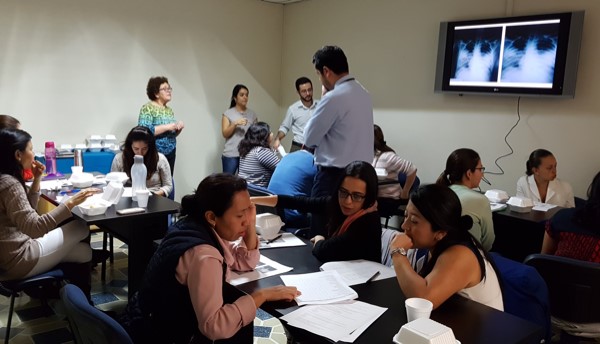
A team from Guatemala has published a new approach to diagnosing AIDS-related lethal fungal infections and tuberculosis (TB) in the prestigious journal Open Forum Infectious Diseases. Supported by the Global Action Fund for Fungal Infections (GAFFI) the Asociación de Salud Integral shows how by providing access to rapid diagnostics and focussed training, LMICs can deliver quality services to millions.
The diagnostic Laboratory Hub in Guatemala City supports a network of 13 of 16 HIV units in the country. Over 90% of diagnoses are delivered within 72 hours allowing optimised antifungal and anti-TB therapy to be given as well as excluding infection allowing anti-HIV therapy to be started safely. Over 50% of new HIV patients in Guatemala first see a doctor when the disease is far advanced. Having a fungal infection or TB increased the risk of early death by 73 times.
Professor Juan Luis Rodriguez Tudela, Senior Medical Advisor to GAFFI said: “This new concept in the provision of diagnostics for middle-income countries needs to be adopted by others – it clearly facilitates the best clinical care for those with complex medical problems so common in advanced HIV infection.”
In addition, these diagnostics have enabled an accurate incidence of TB and the fungal disease histoplasmosis and cryptococcal meningitis in AIDS for the first time in the country. Now, the Ministry of Health in Guatemala can design a realistic plan to decrease the mortality of these patients, and return them to health.
Access to diagnostics is an essential tool to deliver the right treatment for those with HIV. To increase the survival chances of treatable opportunistic infections and enable the same quality of life that high-income countries have for HIV disease, immediate diagnosis of life-threatening infections is critical.
Download Samayoa, et. al. Diagnostic Laboratory Hub in Guatemala, 2020